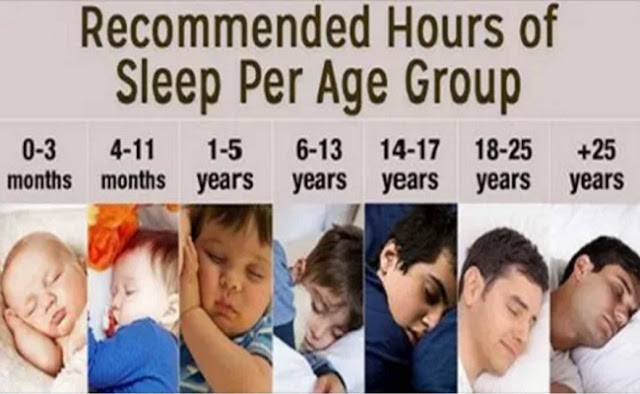The National Sleep Foundation gives a recommended sleep time according the age. Rest is very important for our development and health, so it is necessary to know the recommended hours of sleep that experts advise. If you want to have enough energy during the day, mental clarity and good health, this is the amount of hours you should sleep.
Little sleep: A problem for everyone.
When we do not sleep well, we do not just feel physical tiredness. We also have difficulty concentrating, making decisions, think clearly and suffer from lack of appetite.
Experts have shown that sleep problems are directly related to multiple health problems. It has been seen that sleeping less than 5 hours a night affects our heart health. Less than 7 hours promotes weight gain, obesity and diabetes. One of the first issues to consider is the number of hours of sleep recommended. Knowing if our rest is “sufficient” is the first preventive action.
Recommended Sleep Hours: New Guidelines.
Charles Czeisler, a professor at Harvard University, conducted research along with other experts to determine the recommended hours of sleep. : To do this, different studies conducted between 2004 and 2014. The objective is analyzed to determine how much rest was not enough to affect the health of people.
The following conclusion was reached, according to the different stages of development:
- NEWBORN (0 to 3 months): 14 to 17 hours.
- BABIES (4 to 11 months): 12 to 15 hours.
- CHILDREN (1-2 years): 11 to 14 hours.
- PRESCHOOL (3-5 years): 10 to 13 hours.
- SCHOOL AGE (6-13 years): 9 to 11 hours.
- TEENS (14 to 17) : 8 to 10 hours.
- YOUTH (18-25 years): 7 to 9 hours.
- Adults (26-64 years): 7 to 9 hours.
- SENIORS (over 65 years): 7 to 8 hours.
These hourly rates are approximate. Each person can present a certain variation in the number of hours of rest. However, a considerable decrease in the number of recommended hours of sleep can pose a health risk.
Main causes of sleep problems.
There are two main factors that can trigger rest problems. The first is stress. The second, technology.
Stress: Stress helps to release as much cortisol, also known as the “stress hormone”. Elevated levels of cortisol prevent restful sleep and interfere with feelings of well-being.
TECHNOLOGY: In the light emitting excessive technological devices, the brain is unable to release the amount of melatonin needed. By staying in the dark, our body releases more melatonin, a process that is interrupted by the light of cell phones, laptop or televisions.
Source: SleepFoundation.Org



No comments:
Post a Comment